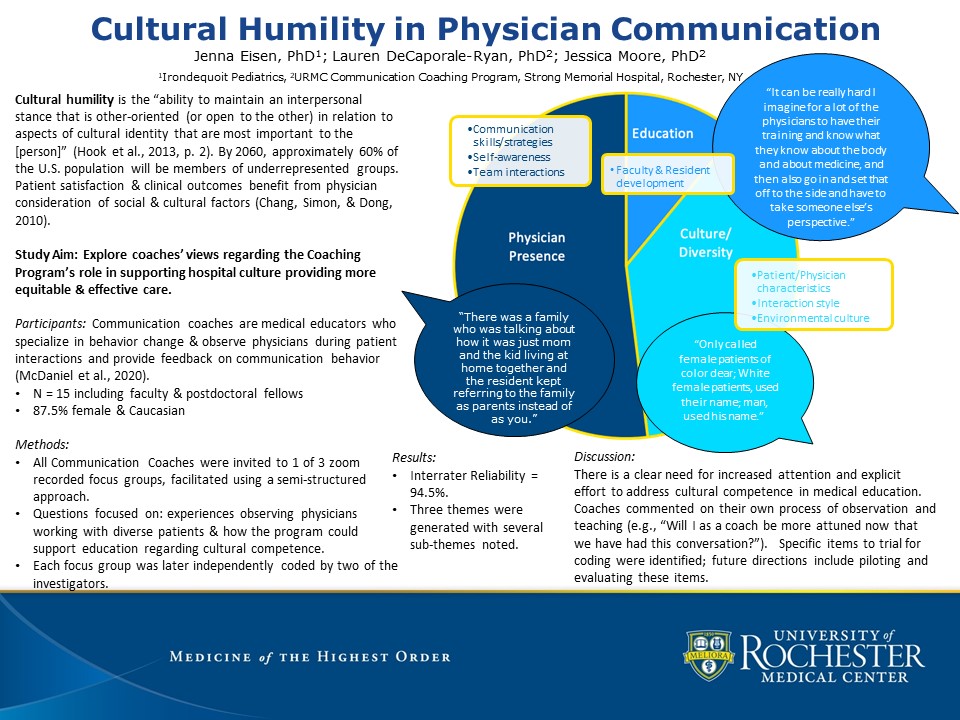By 2060, estimates predict close to 60% of the U.S. population will be members of underrepresented groups. Patient satisfaction, medical adherence, & health outcomes all increase when physicians consider patients’ social & cultural contexts and values (Chang, Simon, & Dong, 2010). The purpose of this study was to evaluate perceptions regarding physician preparedness in providing culturally competent care. At the University of Rochester Medical Center (URMC) there are 15 medical educators who serve as communication coaches to residents in multiple disciplines as part of the Physician Communication Coaching Program. This program was developed to support an identified gap in physician education focused on patient communication skills (McDaniel et al., 2020); coaches are from interdisciplinary backgrounds and have prior expertise in behavior change and medical education. All URMC Communication Coaches were invited to participate in dialogue regarding observations of communication behaviors tied to cultural humility to better understand the need for education in this domain and how coaches could promote improved multicultural competence. All 15 coaches chose to participate in semi-structured focus groups devoted to this topic; a majority were female (87.5%) and Caucasian, and represented faculty and postdoctoral fellows. The focus groups were recorded, transcribed, and qualitatively evaluated by two of the authors. Interrater reliability was 94.5%. Several themes were generated, including Physician Presence, Education, and Culture/Diversity. Future directions include working with the coaching program to identify specific items to trial when providing communication coaching to URMC physicians.
Register today for our In-Person Annual Conference in San Antonio, TX | October 24-26th


Leave a Reply